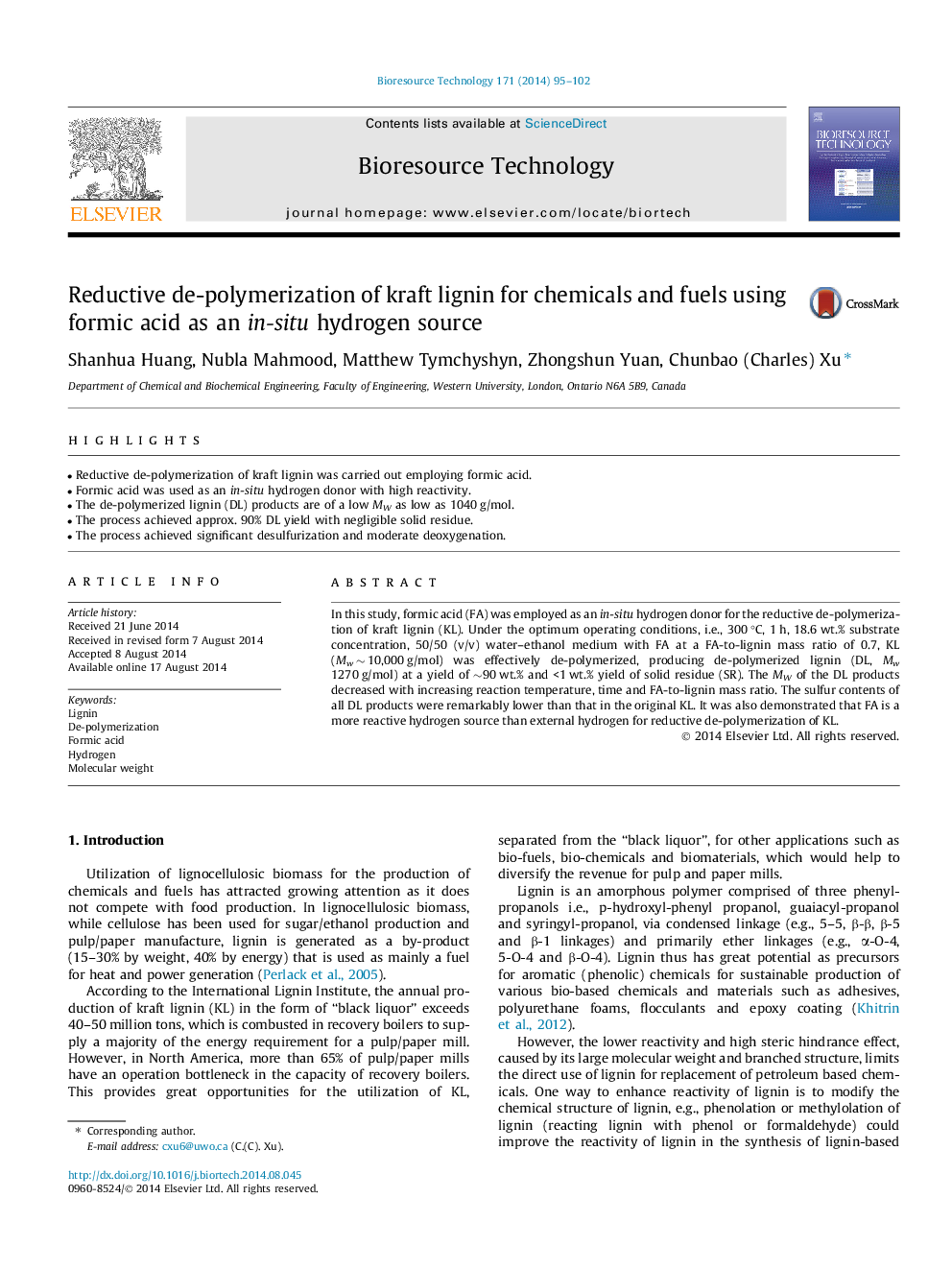| Article ID | Journal | Published Year | Pages | File Type |
|---|---|---|---|---|
| 680399 | Bioresource Technology | 2014 | 8 Pages |
•Reductive de-polymerization of kraft lignin was carried out employing formic acid.•Formic acid was used as an in-situ hydrogen donor with high reactivity.•The de-polymerized lignin (DL) products are of a low MW as low as 1040 g/mol.•The process achieved approx. 90% DL yield with negligible solid residue.•The process achieved significant desulfurization and moderate deoxygenation.
In this study, formic acid (FA) was employed as an in-situ hydrogen donor for the reductive de-polymerization of kraft lignin (KL). Under the optimum operating conditions, i.e., 300 °C, 1 h, 18.6 wt.% substrate concentration, 50/50 (v/v) water–ethanol medium with FA at a FA-to-lignin mass ratio of 0.7, KL (Mw ∼ 10,000 g/mol) was effectively de-polymerized, producing de-polymerized lignin (DL, Mw 1270 g/mol) at a yield of ∼90 wt.% and <1 wt.% yield of solid residue (SR). The MW of the DL products decreased with increasing reaction temperature, time and FA-to-lignin mass ratio. The sulfur contents of all DL products were remarkably lower than that in the original KL. It was also demonstrated that FA is a more reactive hydrogen source than external hydrogen for reductive de-polymerization of KL.
